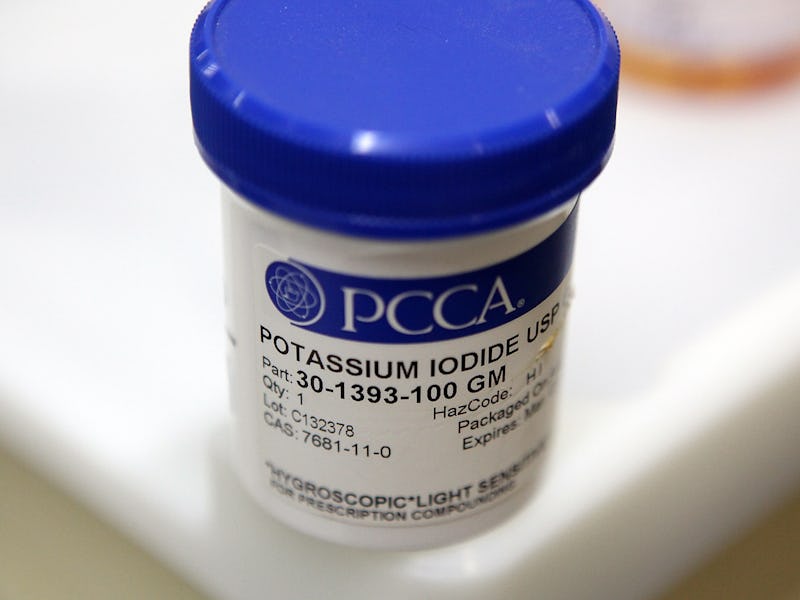Surge in Sale of Radiation Drug Shows How Afraid Americans Are of Nuclear War
People seem to be preparing for the worst.

Don’t get us wrong, Twitter drama can make for some hilarious banter, but all of that goes out the window once you toss nuclear warheads in the mix. President Donald Trump’s now-infamous tweet on January 2 about the size of his “Nuclear Button” has seemingly scared the living crap out of a lot of Americans — so much so, that sales for an anti-radiation drug have skyrocketed.
The owner of the pleasantly-named Nukepills.com, Troy Jones, recently told NPR that he shipped roughly 140,000 doses of potassium iodide (KI), in the two days following Trump’s tweet. That’s more than 16 times the amount of KI he says he’d ever shipped before the tweet.
Potassium iodide is a over-the-counter pill approved by the Food and Drug Administration which stops your thyroid from absorbing radioactive iodine. Jones’s website is a top distributor of the drug, which he also sells to hospitals and universities, according to NPR.
This is the same stuff that is added to iodized salt, which is crucial to the appropriate functioning of our thyroid gland. Even though it’s so common, the FDA and the Centers for Disease Control and Prevention don’t recommend that families stash bottles of KI in case of nuclear emergencies. That’s because it only provides radiation protection for your thyroid and not the rest of your body. Trust us, nuclear fallout won’t be picky about the parts of you it contaminates. It also won’t protect you from other kinds of radioactive elements.
This jump in radiation drug sales is backed up by an Axios poll that was published in August that showed 82 percent of Americans were fearful of nuclear war with North Korea. And this was before Trump decided to make fun of Kim’s nuclear button.
Apocalypse anxieties under President Trump have caused other prepper businesses turn a profit, too. Shortly after Trump assumed office, Gary Lynch, the general manager of underground bunker manufacturing company Rising S Bunkers, told the Miami Herald that high-end bomb shelter sales had gone up 700 percent.
However, the U.S. is no stranger to the fear of nuclear war, and past fallout fears have also prompted a boost in cash spent on protection. During the Cold War, the U.S. and the U.S.S.R. were locked in an all-out arms race. Naturally citizens were terrified of being wiped out in a nuclear assault. This overwhelming concern caused President John F. Kennedy to push Congress to invest $100 million in building public fallout shelters.
In a sense, history may be repeating itself. We can only hope that it doesn’t end in a bang this time either.